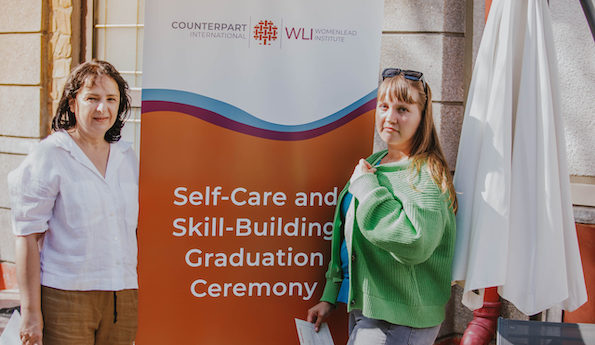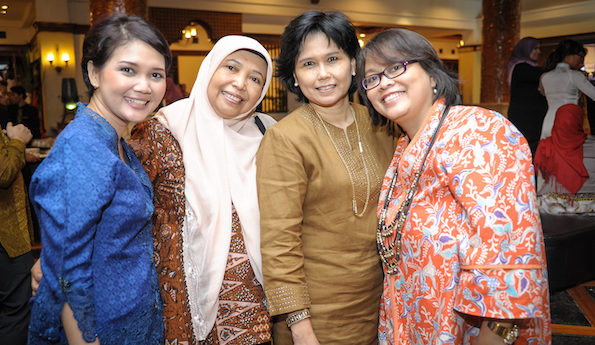This story is part of Counterpart’s 16 Days of Activism series. This year’s global theme is “Invest to Prevent Violence Against Women and Girls.” At Counterpart, our women’s empowerment team partners year-round with women leaders around the world, ensuring they have the training, means, and support to break cycles of violence and discrimination, and give them a voice within their communities. During the 16 Days Campaign, we will be sharing just a few of their incredible stories.
In the heart of Kabul, Mariam Sharifi (not her real name) leads an organization that is changing the lives of thousands of women in Afghanistan. Despite the difficulty women face in obtaining an education in Afghanistan, she earned her bachelor’s degree in business administration and has spent the last decade championing women’s rights. For Sharifi, the turning point was when she visited remote districts. She discovered that women faced a significant challenge accessing menstrual hygiene products. In these districts, menstruation was often perceived as shameful and taboo.
Sharifi knew that she could make a difference in these women’s lives. In 2017, she began producing, distributing, and raising awareness of reusable menstrual kits—in Kabul and in remote regions where women are most vulnerable. Her work has successfully changed mindsets, teaching community members that menstruation is a natural biological process, not a barrier to women’s activity or mobility. But it has not been easy.

Mariam Sharifi’s work producing, distributing, and raising awareness of reusable menstrual kits in Afghanistan has created an outlet for women’s health education and has improved gender equality.
Working with extreme caution, she has had to evade Taliban searches, contend with threats, and defy the ban on women’s presence in society. The risk loomed ever-present, as her efforts challenged deeply ingrained societal norms and traditions. Despite this difficult operating environment, she has made a profound impact, benefiting approximately 20,000 women and girls, including more than 1,000 women in the past year alone. Her unwavering spirit and courage are the driving force behind her organization’s mission.
When the Taliban seized power in 2021, Sharifi was given the opportunity to flee the country; instead, she made the brave decision to stay and continue supporting the women she had been working with for over a decade. Despite the lack of resources and support, she has been able to continue the production of reusable kits and is providing jobs and steady income for her team of 16 people.
As Sharifi says, “in a land filled with conflict, despair, and division, I want to serve as a beacon of hope for other women who believe nothing is impossible in the current situation.” She plans to advance her education and expand her organization to reach the most vulnerable women in remote areas of the country. Her hope is that the international community continues to support the women-led and grassroots-level organizations that play key roles in positive change. She is a symbol of resilience and continues to stay firm in her vision for a better future for Afghan women.






